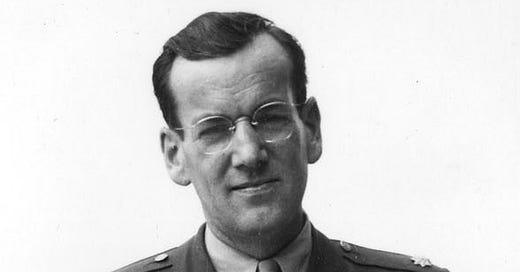Glenn Miller disappears: Today in World War II history
At 1:55 p.m. on Dec. 15, 1944, a single-engine UC-64A Norseman took off from RAF Twinwood Farm in Bedfordshire, England. Flight Officer John R.S. Morgan was at the controls, with two passengers aboard for a scheduled flight to Bordeaux, France: Lt. Col. Norman F. Baessell and Maj. Alton Glenn Miller.
You know Miller by his middle name, as did millions the world over in 1944. The trombonist and bandleader known for "In the Mood," "Moonlight Serenade" and "Chattanooga Choo Choo" had enlisted at age 38 in the fall of 1942.
By the summer of 1944, his 50-piece U.S. Army Air Force band was a staple of radio broadcasts and routinely played to the troops and civilian audiences throughout England. Miller wrote to his wife Helen on the 14th that he was headed to France the next day, with his band to follow on the 16th.
But Miller's plane never arrived, and Helen heard nothing else of her husband until she received word from the War Department on Dec. 23 that he was missing.
As you can imagine, the initial wire-service reports ran in every newspaper in the country over the next few days. But when viewed through a contemporary lens, the stories and the play they received were remarkably understated.
If an entertainer of Miller's stature disappeared today, it would dominate the news cycle for days, maybe weeks. Yet the New York Times handled it with an Associated Press story on page 4 of its Dec. 25 editions, and there was little follow-up in the weeks to come.
Of course the nature of celebrity journalism has changed significantly over three quarters of a century, but news outlets of the time had plenty of objectively more important matters to handle that week -- most notably, the Battle of the Bulge reaching its climax.
In that context, the way the press handled the Miller story drove home the all-encompassing nature of World War II. He was merely one of about 400,000 U.S. service members to die during the conflict, after all.
So even if the coverage looks paltry by today's standards, it was more than the vast majority of his peers received.




